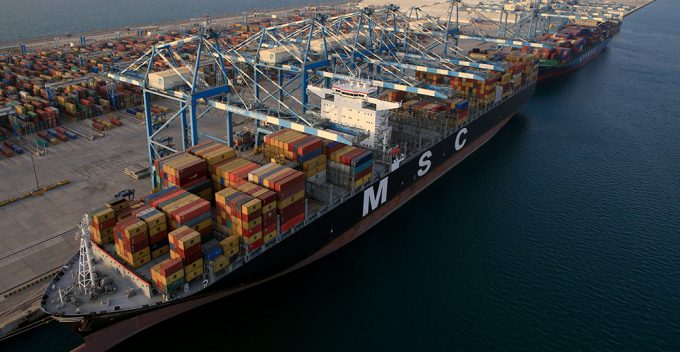DP World to invest $800m in Syria's Tartus port with 30-year BOT deal
DP World has confirmed its entrance into the Syrian market, yesterday signing a 30-year concession ...

Abu Dhabi Ports (ADP) saw a massive 82% jump in the number of containers handled at its flagship Khalifa Port facility in the first half of the year.
It attributed the rise, in the main, to the concession agreement signed last year with shipping line MSC.
ADP ...

Comment on this article